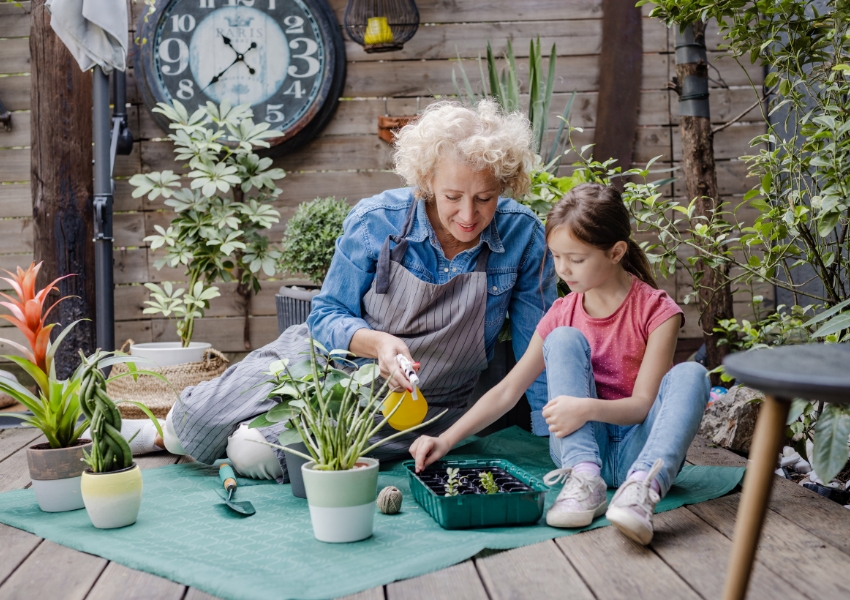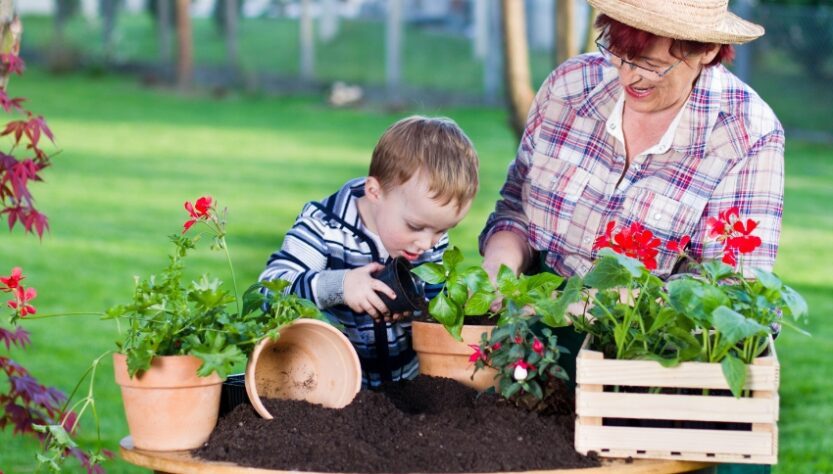Gardening is a way of life, a legacy handed down over millennia, not only about raising plants. Many of us have happy recollections of seeing our grandmothers gently tending to their gardens and sharing knowledge transcending written form. Their gardening advice was not just pragmatic but also imbued with compassion, patience, and a close relationship to the ground. We will explore some of the ageless gardening tips we acquired from our grandmothers today, which are as pertinent now as they were years ago.
- Starting with the soil
Grandma’s garden teaches one of the earliest courses on soil awareness. “If you take care of the soil, the plants will take care of themselves,” she would say A good garden starts with healthy ground. Compost created from cooking waste, fallen leaves, and other organic materials would nourish their garden soil, grandmothers said. In addition to feeding the plants, this encouraged a garden’s sustainable cycle of life.
Create a backyard compost bin here. Make use of vegetable peels, coffee grounds, and eggshells among kitchen wastes. Steer clear of including meat, dairy, or greasy foods into the compost to ward against unwelcome pests.
- Companion Planting: The Enchantment
Grandma was aware of which plants were to be kept apart and which grew well together. Companion planting is the technique whereby some plants are arranged closely to help one another. Planting basil close to tomatoes, for example, improves tomato taste and aids in insect control. Marigolds grown all over the garden also naturally discourage pests.
Try setting beans next to corn. While the towering corn stalks support the climbing beans, the beans will fix nitrogen in the ground, therefore benefiting the corn.
- Save Seeds for the Season After Next One
Grandma’s garden was typical in practice: seed saving. Along with saving money, it guaranteed the survival of hardy, well-adapted plant kinds. From their best-producing plants, grandmothers would carefully gather seeds, dry them, then save them in labeled envelopes for the next growing season.
Save seeds from open-pollinated or heirloom plants; they will generate plants just as they should. Hybrid plant seeds should not be saved since they might not be exactly like their parent plant.
- Utilize Organic Pest Management
Grandmothers employed natural techniques to keep pests away before the age of chemical pesticides. From spreading wood ash around plants to discourage slugs and snails to using a mixture of water and dish soap to manage aphids, these easy but efficient techniques reduced environmental damage.
To make a natural pesticide, combine one tablespoon of dish soap with one lititer of water. Treat plants overrun with aphids or other soft-bodied insects with this spray.

- Water Consciously
Grandma would sometimes advise not watering the foliage but rather the roots. Inaccurate reaching of the plant roots and fungal infections resulting from overhead watering are two drawbacks. To stop water loss from evaporation and guarantee the plants had enough moisture to flourish, she would water either early in the morning or late in the afternoon.
Water your garden using a drip irrigation system or soaker hose. This lets water trickle straight into the ground and reach the roots where most needed.
- Value of Crop Rotation
Grandmothers understood the need of turning over garden crops annually. This method can even discourage pests, lessens the risk of plant illnesses, and helps stop soil depletion. The soil stays balanced and the plants remain healthier when one does not grow the same family of plants in the same place year after year.
Plan a crop rotation for your yard here. To keep soil healthy, for instance, follow legumes with leafy greens and root crops.
- Make Use of What You Own.
Grandmothers were clever, often making use of what they had instead of shopping new. Old newspapers were mulched and broken pots became plant saucers. Along with saving money, this economical approach cut waste and inspired original problem-solving.
Advice: Make use of domestic objects in your garden. Plant markers can be made from old wooden spoons; plastic bottles can be converted into little greenhouses for seedlings.
- Mulching for Control of Moisture and Weed Growth
Grandma’s garden was always mulched—from straw to leaves to even grass clippings. Mulch controls weeds, cools the roots, and helps to maintain soil moisture. It’s an easy, natural approach to keep a garden ecology in good balance.
To stop rot, apply a layer of organic mulch around your plants leaving space around the stem. Replace as needed over the developing season.
- Regular Pruning
Although pruning seems cruel, granny knew that cutting dead or overgrown branches helped plants focus their energy toward producing more fruits and blossoms. Regular trimming maintained the garden rich and healthy whether it was deadheading flowers or pinching back tomatoes.
Prune using sharp, clean instruments. To stop sickness and promote good growth, make neat incisions at a 45-degree angle.
- Observation and Patience
From grandma’s garden, patience is maybe the most valuable lesson. The hurried cannot find enjoyment in gardening. It takes time, patience, and a readiness to grow from mistakes as well as accomplishments. Often spending time merely observing their plants, grandmothers would note the smallest changes and modify their care.
Tip: Spend a few daily minutes in your garden. Look for any evidence of pests or illnesses, check the soil moisture, and observe the plants. This constant focus helps to avoid little problems turning into major ones.
In essence,
Our grandmothers have given down quite excellent gardening knowledge. It reminds us to live in harmony with the environment, make use of our resources, and develop in our gardening techniques patience and care. By using these ageless ideas, we not only produce better, more environmentally friendly gardens but also respect the legacy of those who preceded us. Thus, keep in mind the advise of your grandma and let her wisdom direct your green thumb the next time you are out in your garden.
